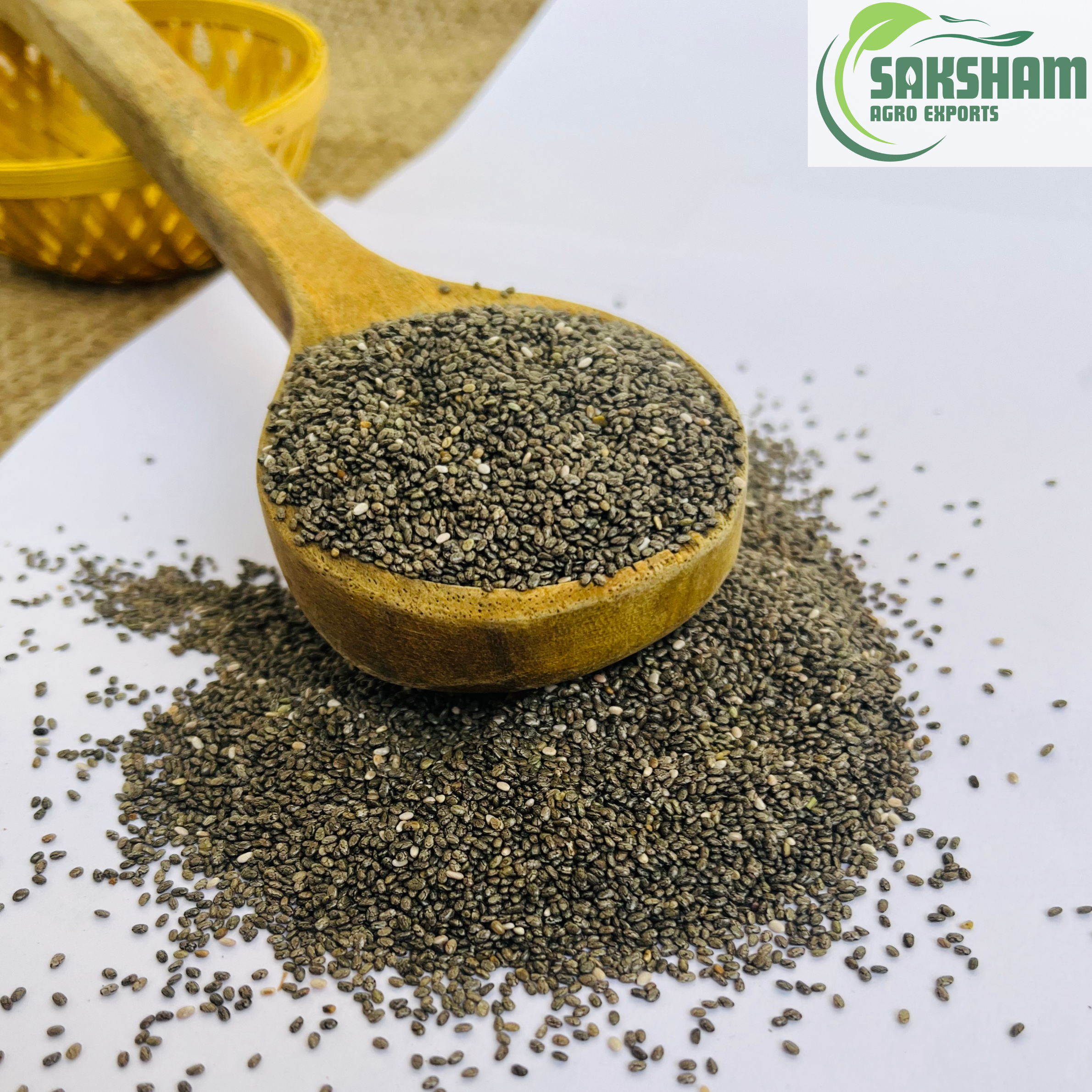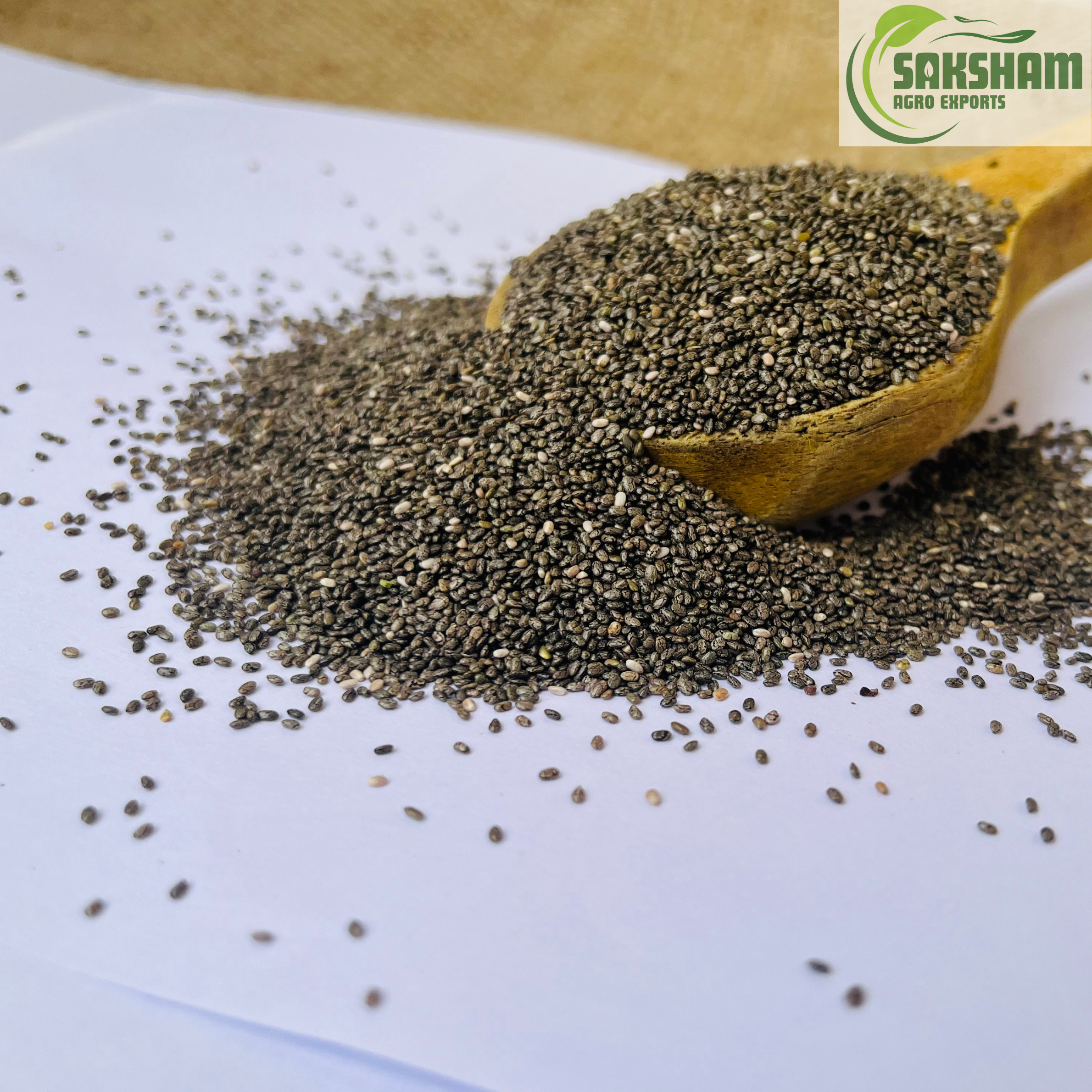Chia Seeds (Salvia hispanica L.)
Image Accordion #1
Image Accordion Content Goes Here! Click edit button to change this text.
Image Accordion #2
Image Accordion Content Goes Here! Click edit button to change this text.
Image Accordion #3
Image Accordion Content Goes Here! Click edit button to change this text.
Image Accordion #4
Image Accordion Content Goes Here! Click edit button to change this text.
Scientific Name
- Salvia hispanica L. (main species cultivated for chia seeds)
Common Names
- English: Chia Seeds
- Hindi: Chia Beej
- Other Names: Mexican Chia, Running Food (as used by the Tarahumara tribe in Mexico)
Description
Chia seeds, scientifically known as Salvia hispanica, are tiny edible seeds native to Central and South America and widely cultivated today for their nutritional benefits. These small black or white seeds are rich in omega-3 fatty acids, protein, fiber, and antioxidants. Chia seeds are popularly consumed in beverages, puddings, and baked goods, and are known for supporting heart health, digestion, and sustained energy.
Health Benefits
Chia seeds are considered a superfood due to their high nutritional value:
- Rich in Omega-3 Fatty Acids – supports heart and brain health.
- High in Fiber – improves digestion, prevents constipation, and supports weight management.
- Plant-based Protein – good for vegetarians/vegans.
- Antioxidant-rich – protects against free radicals and aging.
- Controls Blood Sugar – slows down digestion, preventing spikes in glucose.
Usage
Chia seeds are highly versatile and easy to incorporate into the diet:
- Culinary Uses
- Added to smoothies, juices, shakes, and teas.
- Mixed in yogurt, cereals, oatmeal, and salads.
- Used in baking (bread, muffins, cookies).
- Used to make chia pudding (soaked seeds with milk/plant milk).
- Medicinal/Health Uses
- Consumed daily for weight management and digestive health.
- Used in dietary supplements (capsules, powders).
- Traditional Use
- Ancient Aztec and Mayan cultures used chia as a staple food and for boosting stamina during long travels or battles.


